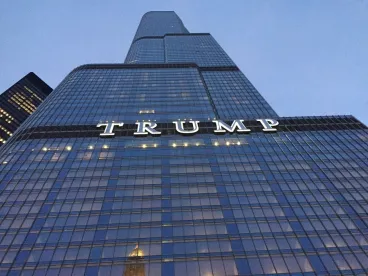Chicago, a sanctuary city, is challenging the Trump Administration’s ability to deny it needed law enforcement funds.
The battle between the Administration and sanctuary localities began in April, when a federal judge blocked a part of President Donald Trump’s Enhancing Public Safety in the Interior of the United States Executive Order that directed government agencies to generally deny federal funding to sanctuary jurisdictions. The judge, however, made clear that its injunction did not prevent the Department of Justice from enforcing statutes – particularly 8 U.S.C. Section 1373. Under Section 1373, “a Federal, State, or local government entity or official may not prohibit, or in any way restrict, any government entity or official from sending to, or receiving from, the Immigration and Naturalization Service information regarding the citizenship or immigration status, lawful or unlawful, of any individual.” Compliance with this statute now is a specific term of Byrne JAG grants. JAG grants provide states and localities funding to support a broad range of law enforcement initiatives.
Chicago received $2.3 million in Byrne funding last year and has applied this year for more. It uses the funding to purchase vehicles and SWAT equipment. Mayor Rahm Emmanuel announced that Chicago was challenging the Administration’s ability to force compliance with Section 1373 by withholding funding for law enforcement initiatives. The City is seeking preliminary injunction to prevent the Attorney General from imposing “unauthorized and unconstitutional conditions” on Byrne funding. The Mayor said the City “will not be blackmailed into changing our values, and we are and will remain a welcoming City.” In other words, Chicago will not agree to allow DHS unlimited access to law-enforcement facilities and will not hold people in jail for an additional 48 hours at the request of ICE, because these actions would be contrary to Chicago’s Welcoming City Ordinance. Chicago’s history with the sanctuary movement began in 1982, when the Wellington Avenue Church decided to become part of the movement.
Emanuel further stated:
The federal government should be working with cities to provide necessary resources to improve public safety, not concocting new schemes to reduce our crime fighting resources. The City of Chicago will continue to stand up to President Trump and his Justice Department to ensure that their misguided policies do not threaten the safety of our residents.
Attorney General Sessions responded:
To a degree perhaps unsurpassed by any other jurisdiction, the political leadership of Chicago has chosen deliberately and intentionally to adopt a policy that obstructs this country’s lawful immigration system. They have demonstrated an open hostility to enforcing laws designed to protect law enforcement . . . and reduce crime, and instead have adopted an official policy of protecting criminal aliens who prey on their own residents.
Chicago is the first city to file a suit over the terms of the Byrne funding, but California has also filed a similar suit. The California legislature also is considering a bill, the California Values Act, which would further curtail local cooperation with federal immigration agents.




 />i
/>i

